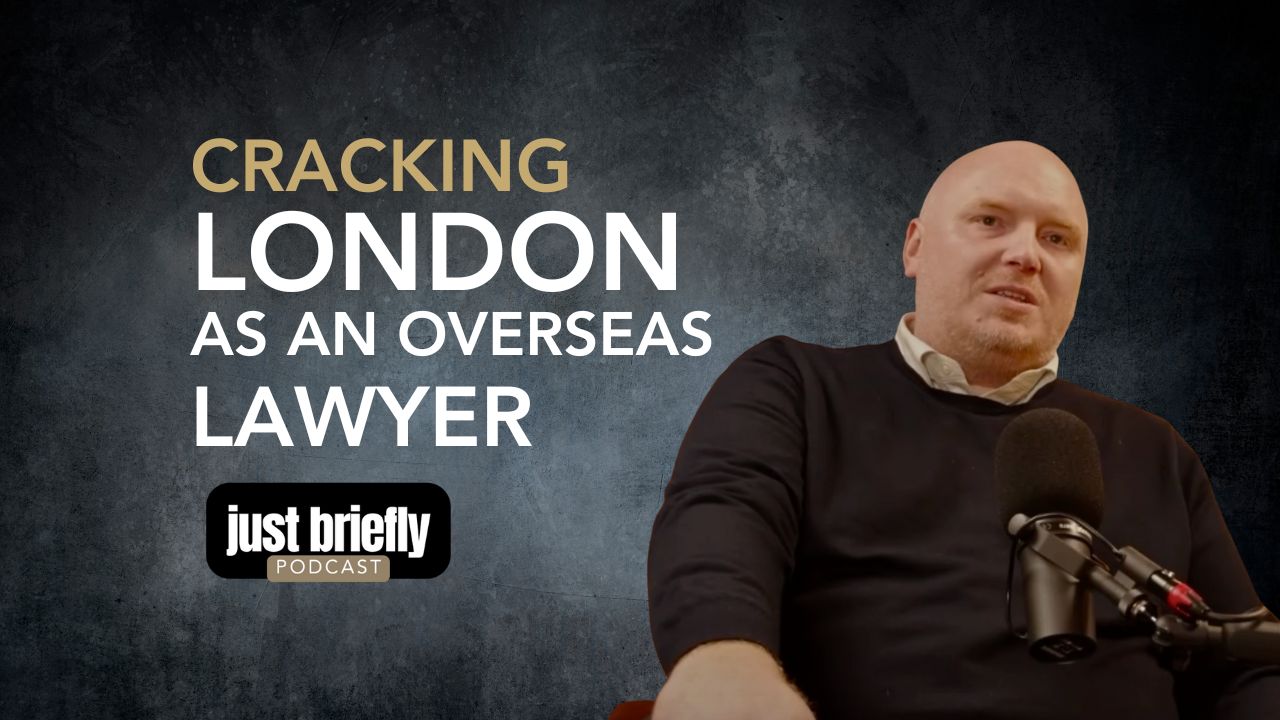U.S. Firms vs Magic Circle: The Shifting Legal Landscape in London

When U.S. firms entered the London market, their goal was clear: to capture a significant share of deal work and play a pivotal role in cross-border transactions for their American clients. Their arrival didn’t just disrupt the status quo—it transformed the market. The expansion of U.S. firms has led to higher salaries, innovative client relationships, and new working models, directly challenging the long-held dominance of U.K.-based firms.
Almost overnight, the Magic Circle found themselves under threat, with U.S. firms rewriting the rules and reshaping the legal landscape in London. U.S. law firms including Latham & Watkins, Kirkland & Ellis and Simpson Thacher & Bartlett have larger U.K. revenues than longstanding British institutions such as Clyde & Co, Macfarlanes and Simmons & Simmons, the latest Law.com International rankings show.
Below, I highlight some key differences between U.S. firms and the leading City firms (Magic Circle), address the pressures facing U.K. firms, and explore where things are heading.
US Firm Standouts
- Cravath Pay & Bonuses
The introduction of the Cravath Scale in London—unprecedented at the time—set a new benchmark for compensation, forcing the Magic Circle to rethink their strategies. Starting salaries for newly qualified (NQ) associates at firms like Kirkland & Ellis, Latham & Watkins, and Simpson Thacher often exceed £160,000, setting new benchmarks for associate pay in London. Even “mid-market” U.S. firms like Cooley, Mayer Brown, Hogan Lovells, and Norton Rose, which don’t strictly adhere to the Cravath scale, still offer compensation far above most U.K. counterparts, despite being fully Cravath in New York. This approach enables them to develop distinct identities in the U.K. without directly mirroring their U.S. offices' pay structures.
How Can U.S. Firms Out-Pay U.K. Firms?
U.S. firms in London can afford these pay scales due to their financial structures and global workflows:
- Integration with U.S. Operations: London offices often act as extensions of their U.S. counterparts, with associates handling high-value deals for U.S. clients, including private equity, M&A, and leveraged finance. This integration closely ties London to the lucrative U.S. market.
- Higher Profitability: U.S. firms generally generate higher revenue-per-lawyer and profit-per-equity-partner figures, allowing them to sustain higher associate salaries globally.
- Brand Reputation & Rainmaker Partners
Firms like Kirkland, Latham, and Paul Weiss have captured the attention of London associates for reasons beyond competitive pay. Their brand reputation, ambitious growth strategies, high-profile clients, profits and renowned partners generate significant interest. Paul Weiss has hired 7 high profile partners in London this year from the likes of Kirkland & Ellis, Linklaters, and Clifford Chance. Cravath recently hired leveraged finance partners Rohan Saha and Chris Medley from Linklaters and secured a new workspace at 100 Cheapside, indicating long-term investment in London. Kirkland, Cleary and Skadden have also made big hires and big money in London this year.
- Leaner Teams
The smaller teams at U.S. law firms mean there are fewer associates competing for access to prime quality work. For associates who are confident self-starters and unafraid of early responsibility, this can be a major benefit of moving to a U.S. firm over a Magic Circle firm.
Magic Circle Highlights
- Training & Development
Magic Circle firms have long been leaders in associate training, having invested decades into building robust development programs. Securing a training contract at a prestigious Magic Circle firm is a significant achievement, laying a solid foundation for a successful legal career.
In contrast, many U.S. firms in London have had a shorter presence and, as a result, their focus has often been more on fee-earning and practice building. Historically, their approach to associate training leaned toward a “learn-on-the-job” model. However, U.S. firms are increasingly recognizing the importance of structured training and development programs. New initiatives are being introduced to create clearer pathways for associate growth, but they still lag behind the Magic Circle in this area.
- The Prestige
Magic Circle firms carry a high level of prestige in the London market, with longstanding partnerships and reputations built through decades of service to major clients, which includes the world's biggest banks and financial institutions, global listed corporates and governments. Working for these institutions will provide major career development.
Pressures Facing U.K. Firms
The rise of U.S. firms has significantly increased competition for talent, compelling U.K.-based firms—including the Magic Circle and Silver Circle—to adapt. Magic Circle firms now pay NQs £150,000, not far behind their U.S. rivals. Higher salaries and Magic Circle firms has also pushed up billable hour requirements which has somewhat affecting their reputation for providing more of a work-life balance over U.S. firms, as revealed in Legal Cheek's law firms' average start and finish times 2023-24.
While working hours can be long, Magic Circle firms are increasingly recognising the importance of work-life balance and are actively implementing measures to improve it, including offering flexible working arrangements and wellness programs for their employees.
Traditionally, Magic Circle firms also have strict hiring requirements, with a solid preference for U.K.-trained candidates. To address vacancies caused by departures to U.S. firms, Magic Circle firms will be under pressure to loosen requirements and may need to widen their candidate pool, potentially reducing the exclusivity of their hiring process.
Are Mergers the Answer?
In response to evolving dynamics, the frequency of mergers among major firms has increased. The Allen & Overy and Shearman & Sterling merger last year marked the start of something new, highlighting the pressure to achieve global scale and profitability. Similarly, discussions between Kramer Levin and Herbert Smith Freehills (HSF) suggest a growing trend of transatlantic alliances aimed at strengthening market positions and talent pools to combat the widening gap between U.S. and U.K. firms in London.
These mergers align with the broader narrative of U.S. firms reshaping London’s legal landscape. They underline the need for U.K. firms to adopt new strategies to compete in an increasingly globalised and demanding market. By merging with U.S.-based firms, U.K. firms can access new revenue streams, mitigate the talent drain, and enhance their competitive edge.
The presence of U.S. firms in London has undeniably transformed the legal market, introducing higher salaries and changing how firms attract and retain talent. While U.K. firms remain prestigious and continue to dominate in certain areas, they face growing challenges to stay competitive. Recent mergers represent a strategic pivot, emphasising the importance of adaptability in the face of transatlantic competition. As the market continues to evolve, these dynamics will shape the future of London’s legal landscape.

.png)




